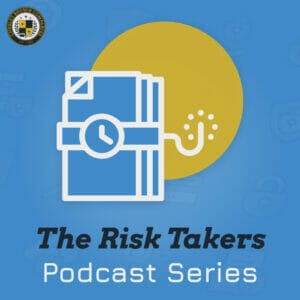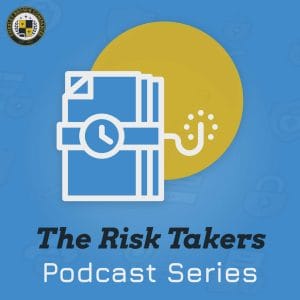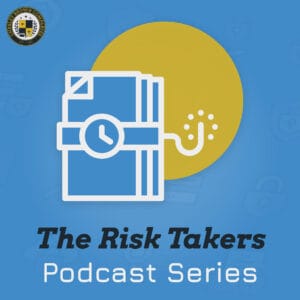Written By: James Hart
Linda Daly didn’t know exactly what was wrong, but something was off about her latest business deal.
A month earlier, Daly – the owner of a midsize retail chain in the upper Midwest — had been excited about investing in an up-and-coming manufacturer that lined up perfectly with her own mission.
Her team had done its due diligence, and the smaller company’s books looked spotless. Its owner had even won a string of business awards and been the subject of glowing national media coverage.
But Linda couldn’t shake the feeling that she was missing a critical piece of information. So she called an old friend in the corporate investigations business.
“You’ve been in business long enough to know that people can and do lie,” the Investigator told her. “That’s why you should also do an asset search on this other company.”
Hiring an investigator to conduct a professional asset search can help protect businesses from unacceptable risks by giving them clear, accurate information about potential hires and business partners — before it’s too late.
What is an asset search?
An asset search is essentially an inventory of a person or company’s publicly known assets and, in some cases, liabilities. Investigators primarily use public records and databases to build that picture.
That can include ownership of physical property (such as real estate) and even intellectual property (such as patents and trademarks). But the search can also determine if a person or company has bankruptcies, civil judgments, liens and other red flags in its history.
The search can help you determine who exactly owns a particular asset, how much it might be worth and where it’s located. (You’ll need to know which jurisdiction it’s in if you intend to take legal action against someone.)
When do businesses need asset searches?
Maybe the up-and-coming entrepreneur asking for your investment is actually living in his parents’ basement while he tries to settle a list of lawsuits longer than his arm. Or the customer who owes you six figures actually has not one, but three investment properties hidden away in another state.
You might call for an asset search …
- Before buying, entering a partnership with or investing in another entity. A search can give you a better idea of the other entity’s financial stability. The search can reveal if that potential partner has a list of bankruptcies, liens and other issues haunting their past. In a merger or acquisition, an asset search can also give you a better sense of the other company’s real value.
- Before deciding to sue someone, especially if they owe you money. If that someone is “judgment proof” — they don’t have many or any assets — it doesn’t make sense to waste the time and money on a court case. An asset search can also help you uncover when a debtor or potential defendant is hiding assets in order to appear poor.
- Before hiring an employee for a sensitive role. As part of their risk management, some companies, especially in the finance industries, may conduct an asset search to ensure their potential hires are trustworthy.
- When determining if an employee may have acquired assets beyond their salary, a potential indicator of embezzlement or similar actions.
What does an asset search cover?
An asset search can encompass many different types of assets and information, but the most common items are:
- Real estate — Real estate is one of the most valuable types of assets, and it can usually be found and tracked via public records, though some people will try to hide ownership. Which is why a good asset search looks at a subject’s …
- Interests in LLCs and other business entities — An individual will often try to disguise the extent of their holdings by transferring ownership of an asset to a seemingly unrelated legal entity, such as an LLC. An asset search can help you understand if properties are being hidden from you. The search may also reveal if other persons or entities share an ownership interest in an asset.
- Patents, trademarks and other intellectual properties — Intangible assets are still assets!
- Automobiles, watercraft and aircraft
- Judgments, liens and bankruptcies — Not an “asset” per se, but this publicly available information can be just as useful because it reveals if your subject has outstanding debts (to others who may have a claim on the subject’s assets) or if the subject has a history of being less than reliable.
What an asset search can’t always find
It can be difficult to impossible for investigators to find bank and investment accounts. The Financial Services Modernization Act of 1999 (aka the Gramm-Leach-Bliley Act) prevents investigators from using false pretenses, such as pretexting, to obtain bank account information from institutions or their customers.
Why should you hire a private investigator for an asset search?
Several web-based services allow businesses to pay for a basic asset search across multiple regions, but those types of reports often lack the context that a human investigator can provide as far as what different documents mean.
When you hire an investigator, you’re also getting someone who can go beyond the basic documents and pursue lines of inquiry suggested by the public record — such as, for example, making a phone call to someone who previously sued the subject of your asset search. That person might be able to give additional information about what the subject owns.
Find the truth about your business partners
A few days later, the Investigator called Linda back about her potential business partner. The new asset search found he had not one, but two previous bankruptcies. Even more worrisome? Someone else owned the patent that made up a critical part of the manufacturers’ product.
It was enough that Linda decided to pull the plug on the deal. She felt shocked -– and even a little embarrassed — that she came so close to going into business with such a risky partner.
“Don’t beat yourself up,” the Investigator said. “People are used to using asset searches for situations like divorces. Not everyone thinks about requesting one for risk management, but it’s one of the smartest steps you can take to protect yourself and your organization.”
The takeaways
- An asset search can help businesses build a clearer picture of the assets and liabilities of potential business partners, employees and litigants.
- A search can reveal both physical and intangible assets, such as real estate or patents, as well as bankruptcies, liens, judgments and other red flags.
- A professional investigator can provide depth and context that web-only asset searches don’t include.
Posted by:
Sign up!
For industry-leading guides and analysis sign up for our blog below.
Latest News
How to Prepare for Economic Risk
Best Strategies for Building Resiliency How to position your business for uncertainty If there is one aspect of business that is certain, it’s uncertainty. It might also be the understatement of the year to say…
Read Morerisk-takers #2 Terry Fisher — Electronic Countermeasures
Have you ever stopped to ask yourself what it is about your business that is truly valuable? When you really think about it, any business with a product or service has something a competitor or adversary could use. And if you’re being honest, you probably haven’t fully considered all the ways they might get their hands on that information. You’ve spent years building your business, but all it takes is one bad day to compromise that dream. In this week’s episode Brent sits down with FBI Special Agent (Ret.) and engineer Terry Fisher to discuss corporate espionage, electronic countermeasures (sweeps), bugging, and the common methods bad actors have used throughout history to gain access to proprietary information.
Read MorePodcast | Risk Takers Series #2 Terry Fisher — Electronic Countermeasures
Have you ever stopped to ask yourself what it is about your business that is truly valuable? When you really think about it, any business with a product or service has something a competitor or…
Read MoreThe Risk Takers Podcast Series Launches Today!
Chesley Brown Launches the Risk Takers Podcast Series Security Risk Management experts Chesley Brown Companies today announced the launch of “The Risk Takers Podcast Series” — a highly bingeable podcast hosted by veteran risk management…
Read Morerisk-takers #1 The Aldrich Ames Espionage Case
Dell Spry, a former FBI investigator and counterespionage expert, sits down to discuss the biggest case of insider theft in U.S. History: The Aldrich Ames Case. Hear how he, along with the help of the CIA, and the fellow FBI agents used their cunning, hard work, and old fashioned investigative work to capture and convict most infamous CIA officer-turned traitor: Aldrich Hazan “Rick” Ames. Beginning in 1985 the CIA experienced the unparalleled loss of its of Soviet assets, which nearly destroyed the government’s ability to gather intelligence on the Soviet Union. In this interview Mr. Spry discusses his personal involvement in the case as the FBI’s lead investigator including many of the investigative methods they used. Hear never before details about the harrowing investigation to not only investigate and convict the highest ranking government official ever accused of spying, but to protect future Russian assets. In 1991, the quest led them to search for a Soviet spy in the CIA. They came to identify that spy as CIA Case Officer, Aldrich Hazan “Rick” Ames, a long-time CIA case officer and analyst. In February of 1994, Ames was arrested by the FBI and sentenced to life in prison.
Read More






